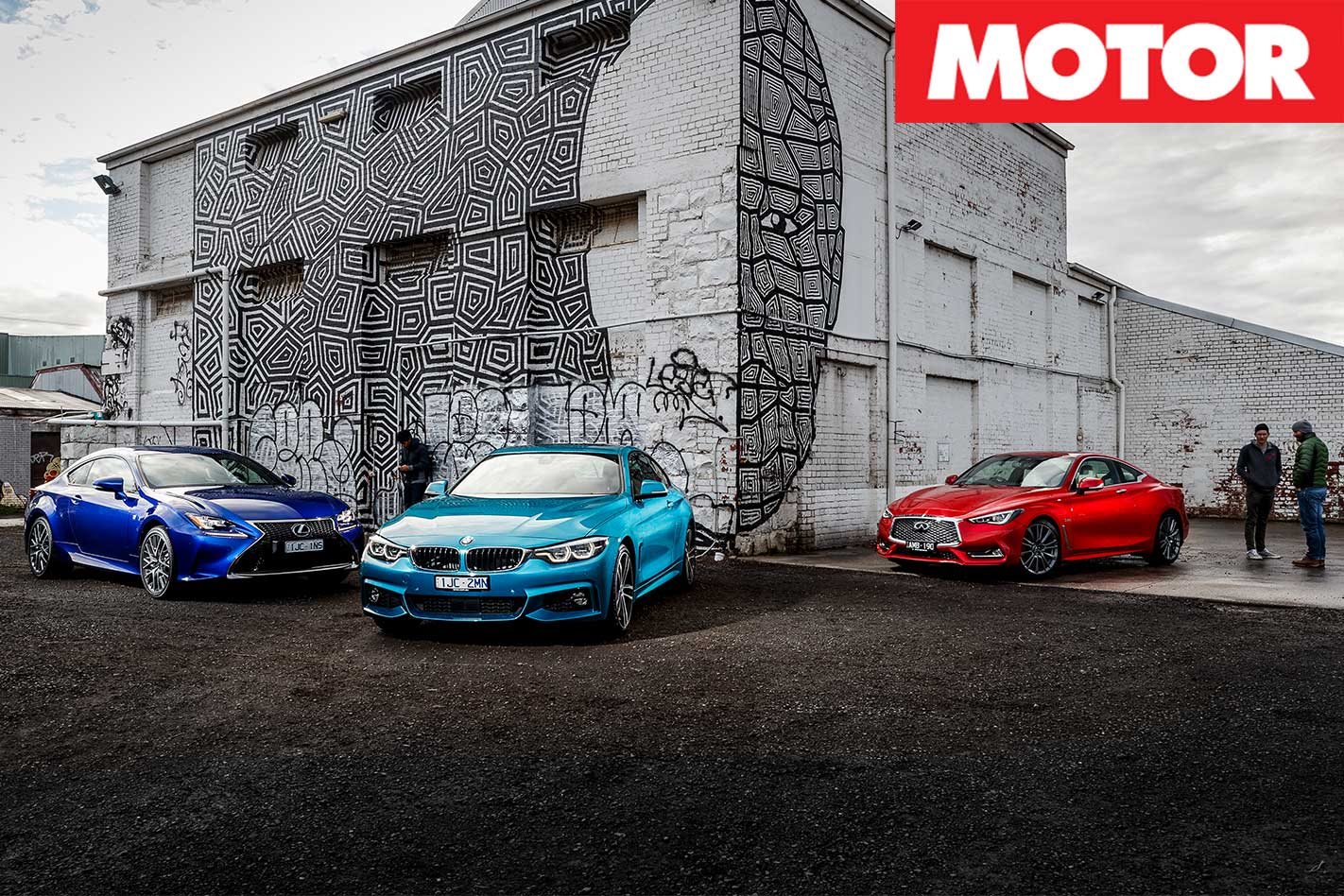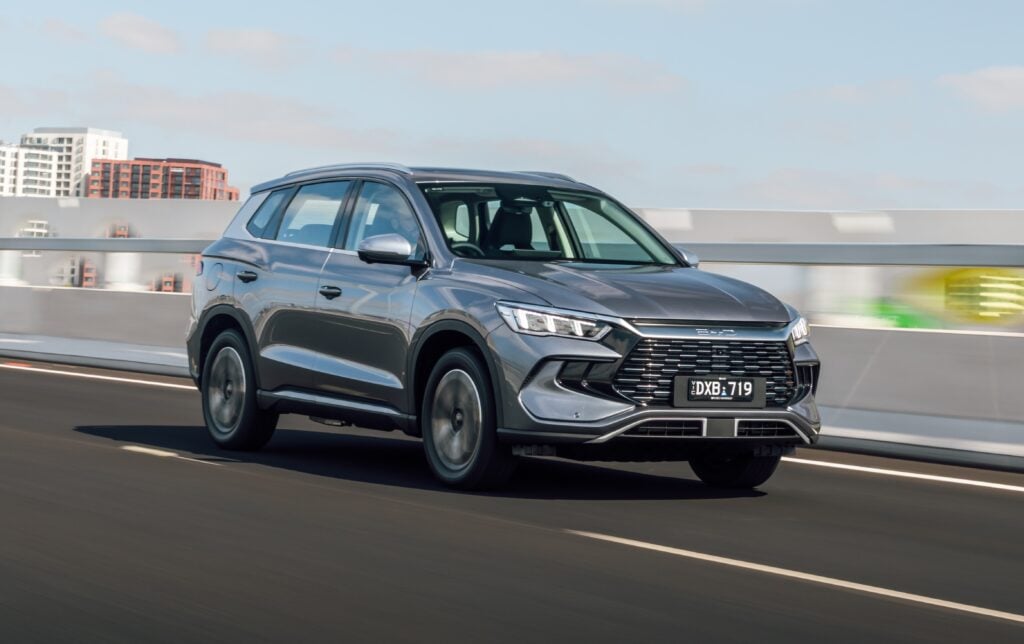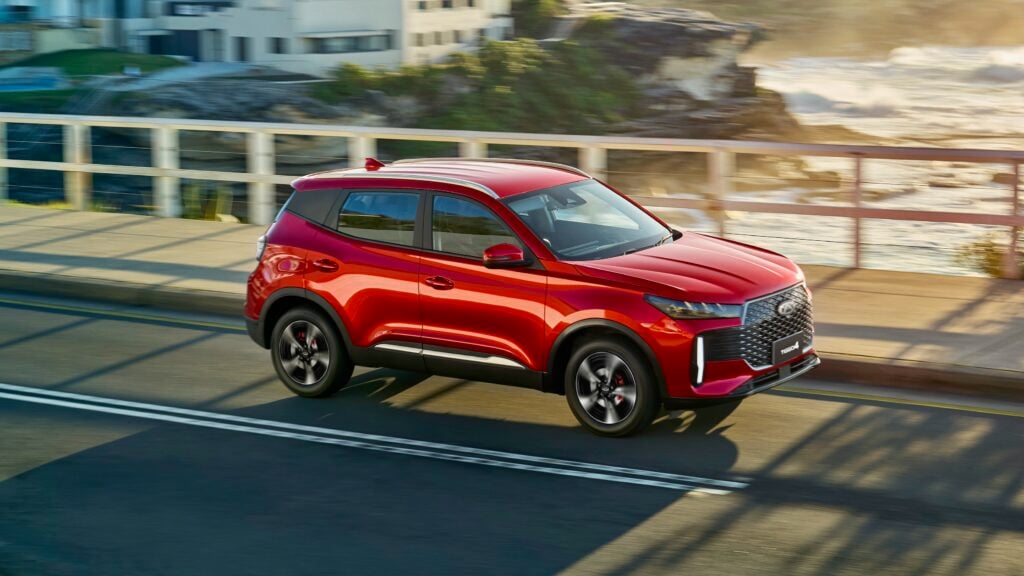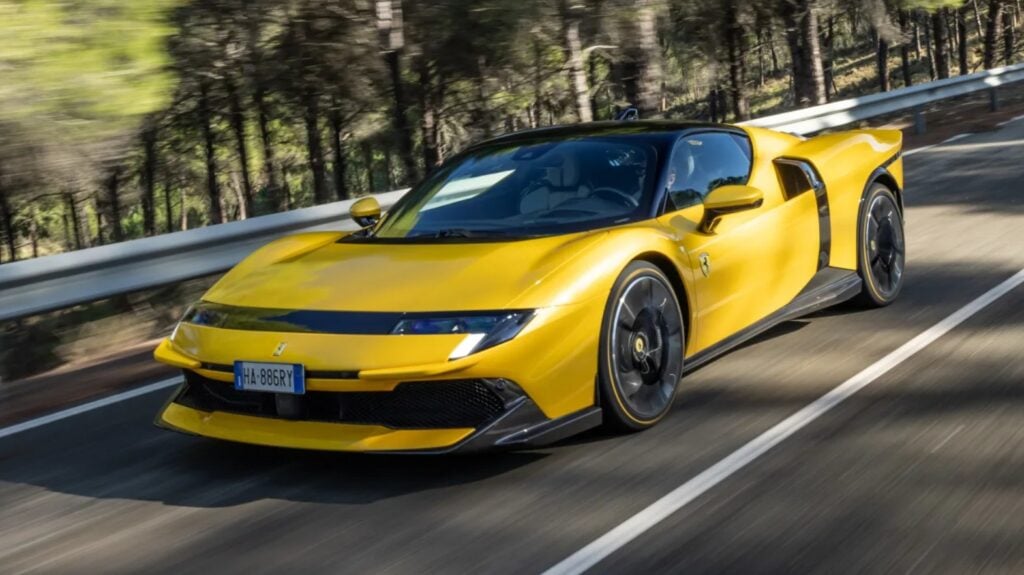“Same taste, different bottle,” read the tomato sauce label. Have we reached peak tomato sauce, where the only improvements that can be made are to the bottle it comes in? Maybe.
Japanese upstarts Lexus and Infiniti reckon it’s the same when it comes to cars. Both think that a cheaper thing down the aisle can be just as good, if not better. With eyes now fixed on the six-cylinder luxury coupe, they’ve lopped two doors off their mid-size sedans and promised Tonkatsu tastes just as fine as Germany’s best pork schnitzel.
Going into bat for the status-quo is the BMW 440i. As our benchmark, it also needs to redeem a recent thumping the 340i took from its home continent rivals. Fresh from a mid-cycle update, retuned adaptive suspension in this car’s M Sport Pack teams with the brawny B58 inline-six, which upgrades the old N-series unit with more boost and a sturdier block.
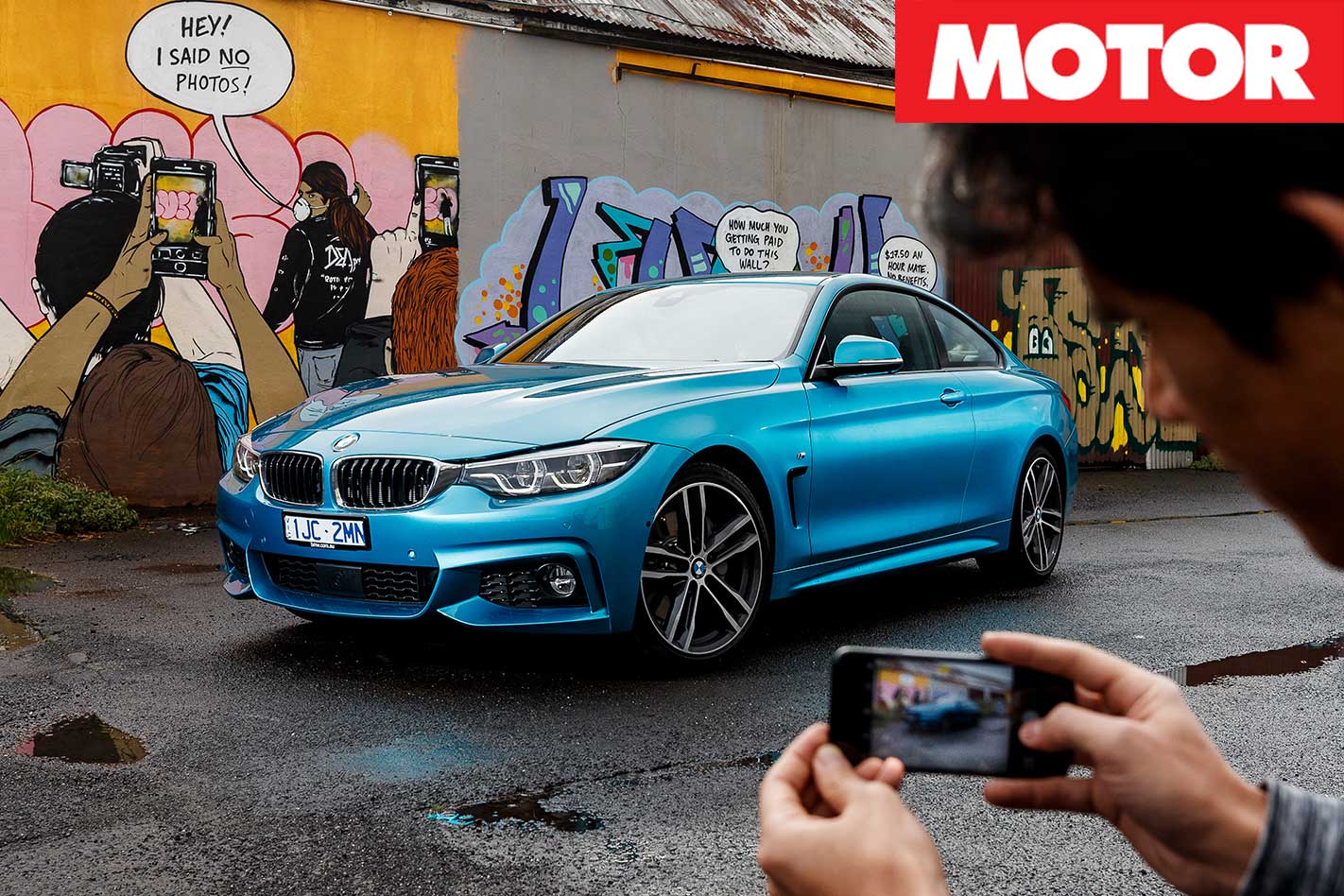
It’s the same at Infiniti, who gouge you $9K for the two-door equivalent of the Q50 Red Sport. The seductive coupe from Nissan’s Hong-Kong based luxury arm came wrapped in a fresh exterior last year, but don’t be fooled into thinking the Q60 is an ‘all-new’ car. It’s grown in length, width and the tracks are slightly wider. But that 2850mm-long wheelbase hints at Nissan’s FM platform which, after featuring in the 350Z, is due for a pension card.
At 1784kg the Red Sport’s steel-heavy structure and standard options list mean it’s 20kg heavier than a GT-R and the portliest here. Thankfully, this is countered by a plasma-sprayed, twin-turbocharged, direct injected 3.0-litre V6 seething with 298kW and 475Nm.
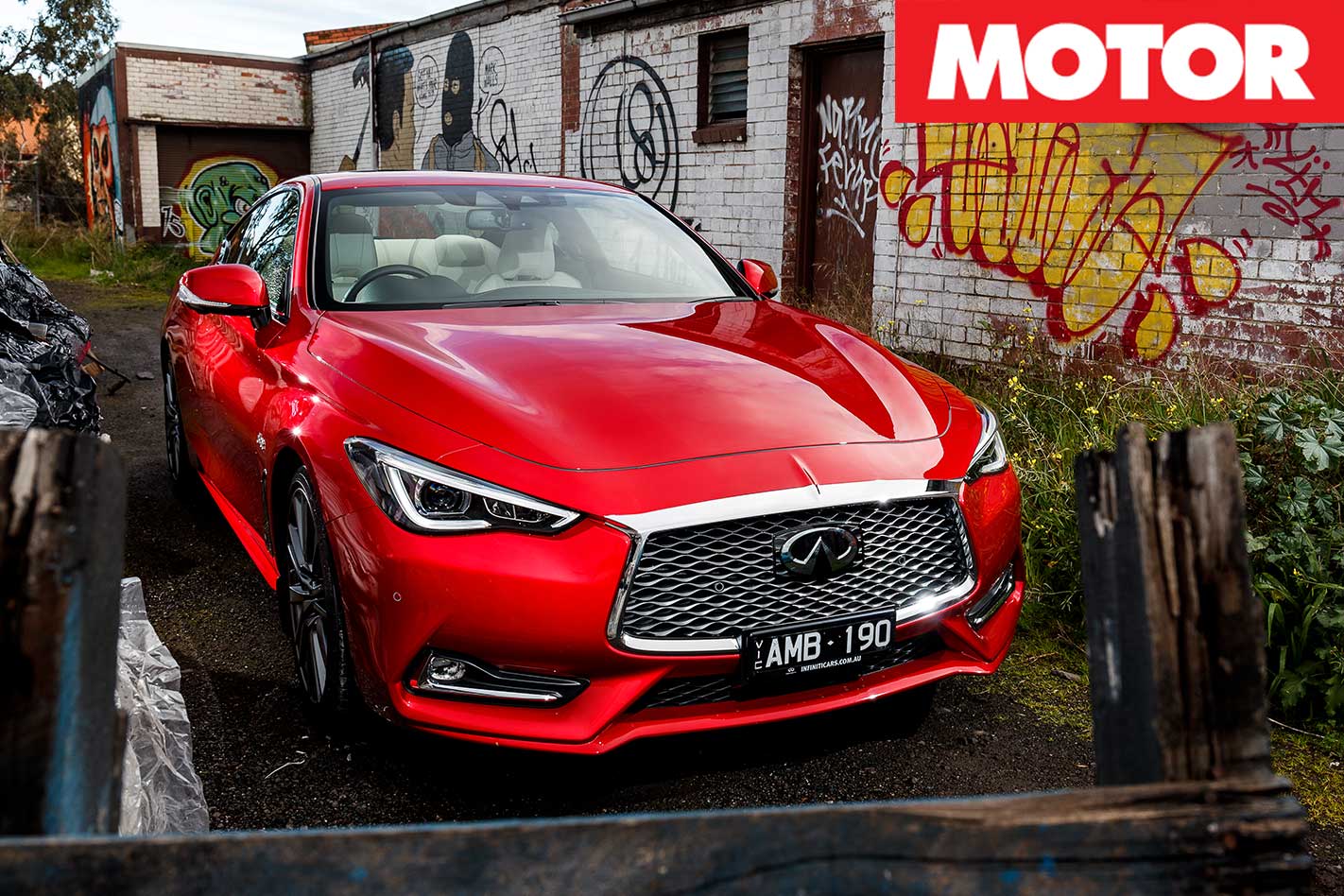
The Lexus plays the outcast again at the drag strip. While the Infiniti and BMW pack V8-worthy twist, the F Sport’s torque-to-weight ratio of a regular hot hatch equals a 6.4-second sprint to 100km/h and the slowest quarter mile. It’ll break traction, but the 350 doesn’t get moving until 4000rpm. Besides this, what’s more frustrating is how little the RC revs for such an oversquare engine. Its 6600rpm redline is well short of its turbo competition, and the eight-speed auto won’t let you reach it, upshifting at 6200rpm – even in manual mode.
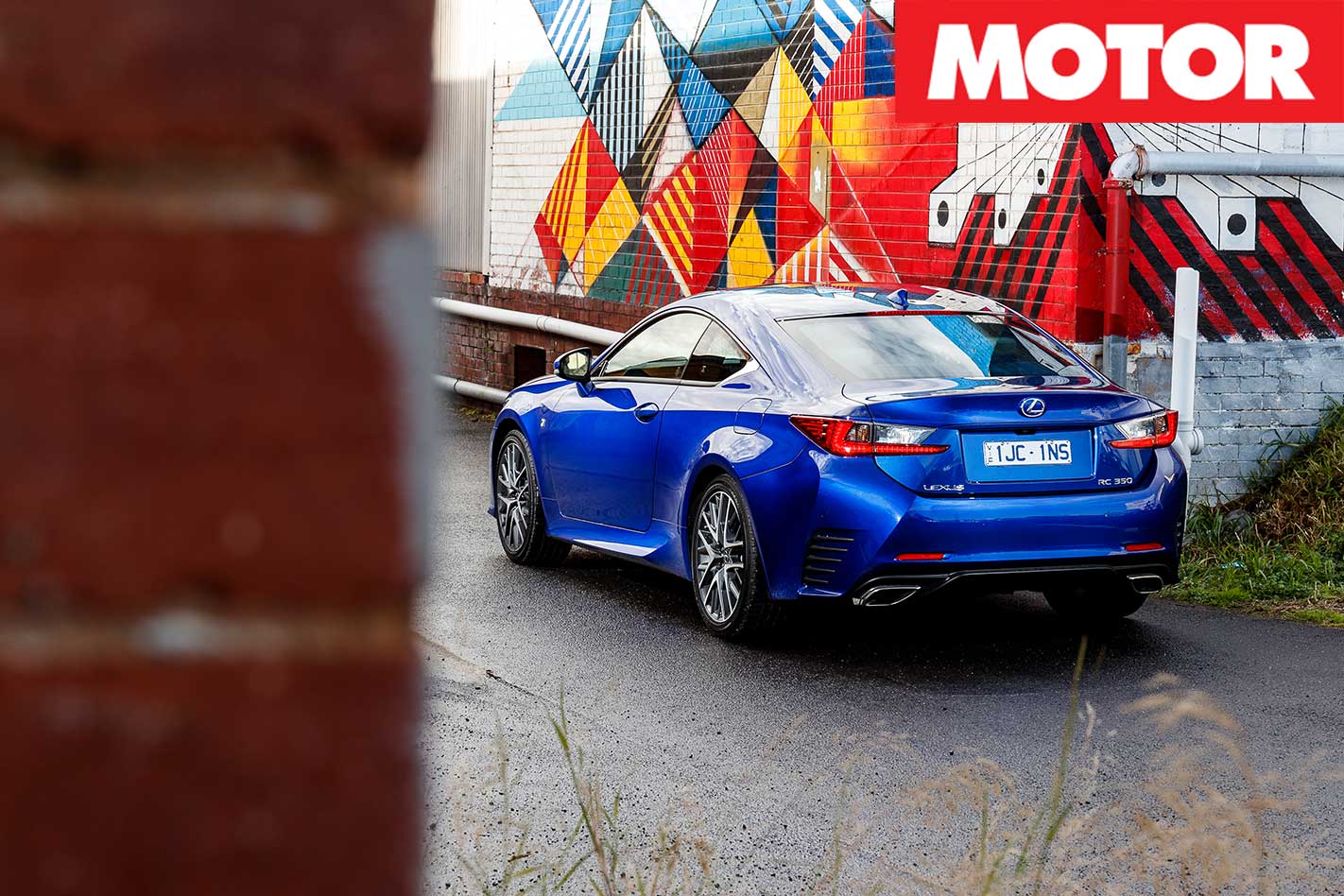
Speaking of, the 440i is the only car to near its claimed time. Conjuring launch control requires sports mode and a 2500rpm two-step, good enough for a 5.1sec sprint to 100km/h. It’s grippy enough to do the times without traction control, but an LSD would help. The eight-speed also rushes its first few shifts to relish the engine’s low-down torque, but the six loves to spin past the indicated 7000rpm redline in higher ratios.
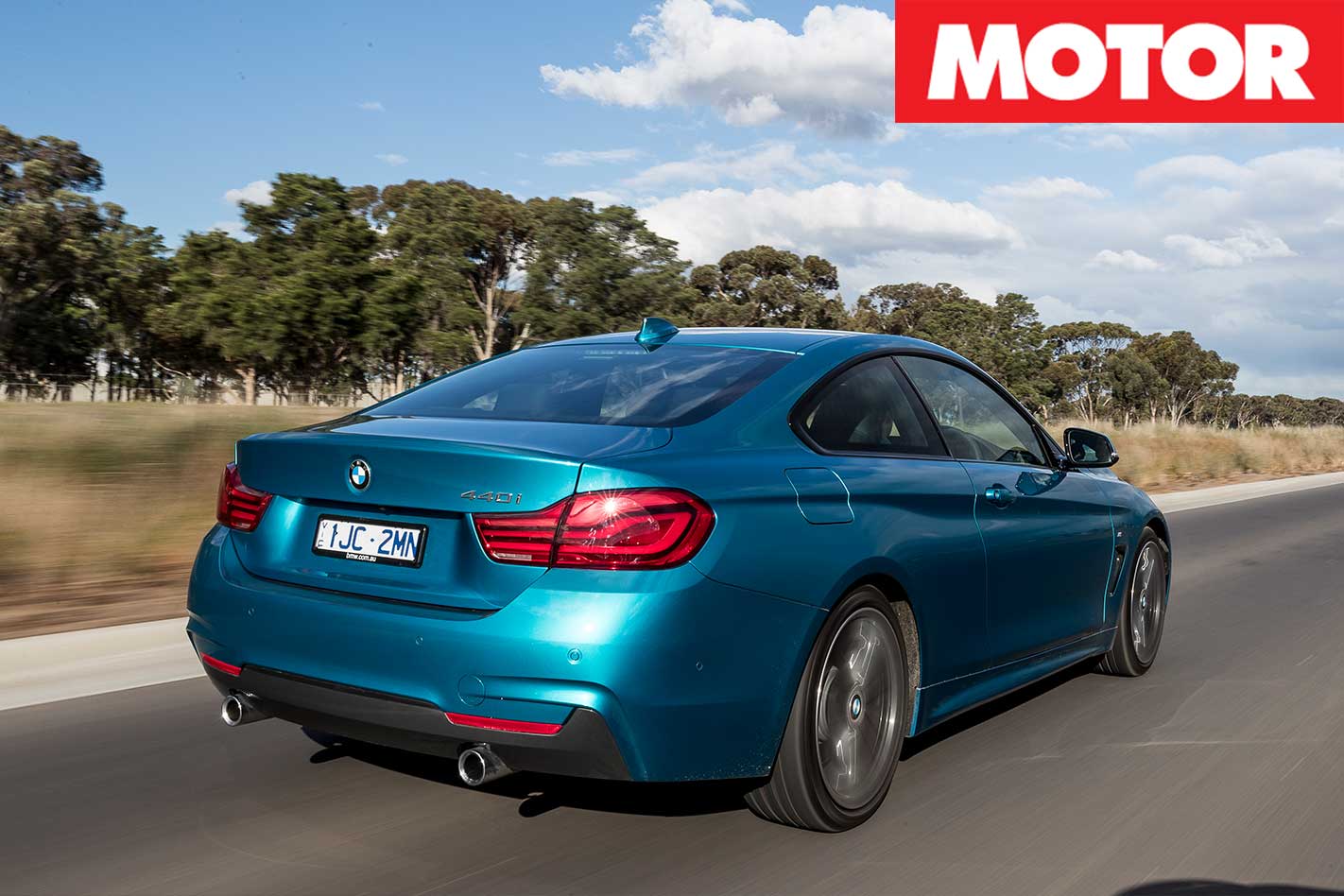
Infiniti says the steering’s been upgraded and while it’s more accurate, it’s frightening to drive fast in wet conditions on Dunlop run-flats. Rubbery steering weight and numbed feedback make it sometimes impossible to judge how much lock is needed.
Then there’s the rear axle, which has to deal with 475 newtons without any sort of torque vectoring technology. Even small throttle inputs make the stability light strobe like a disco. It has some grip, but a lack of composure. And after a crack, you bail out of the Infiniti exhausted, confused and disappointed.
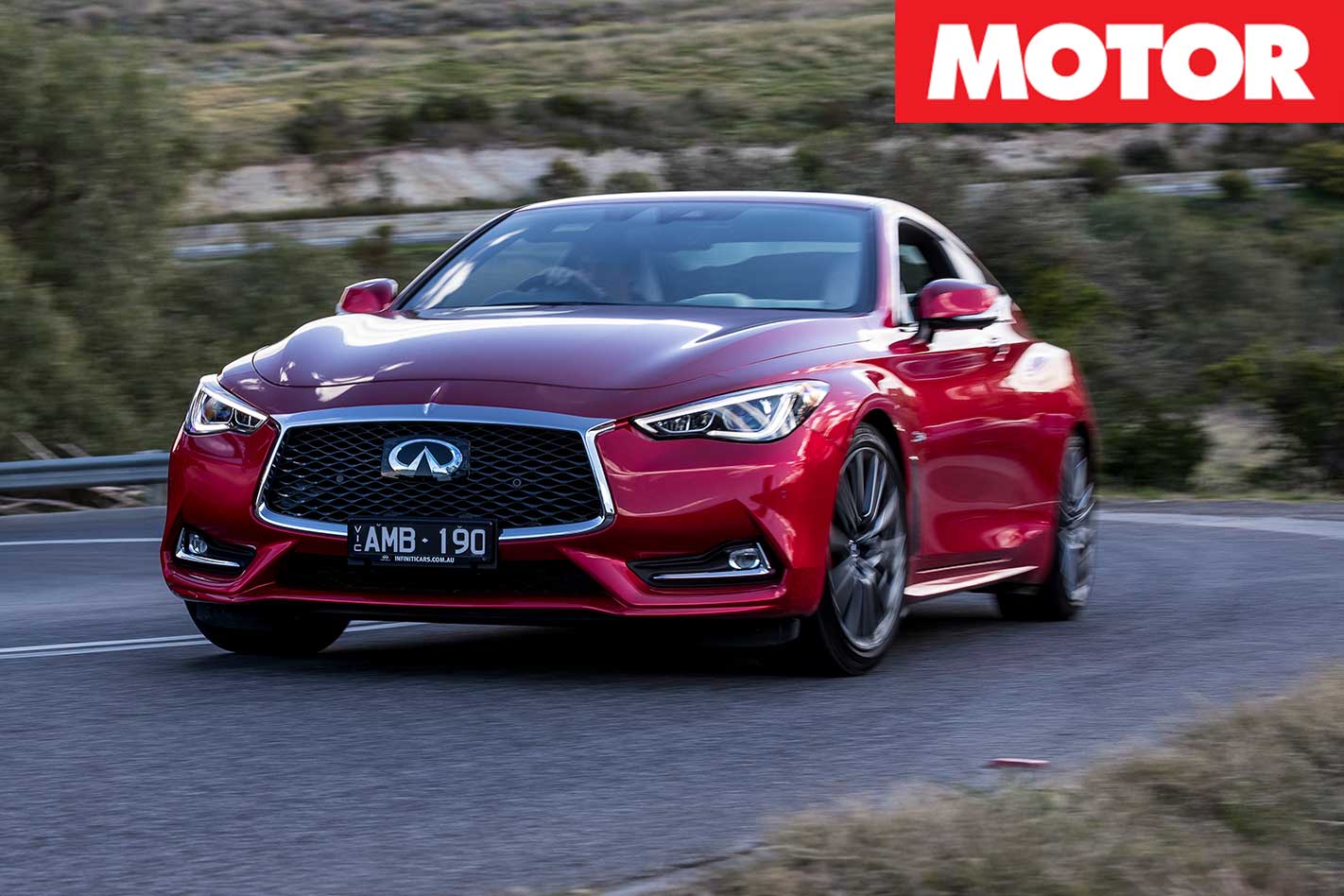
Variable-gear steering at both ends means it slices tighter corners with only a little lock. It doesn’t ride perfectly on its thinly padded 19s, even on adaptive suspension, and no matter what mode you pick (there are four to choose from) it struggles to settle after striking mid-corner bumps. But healthy damper travel and body roll are there to help extract more grip.
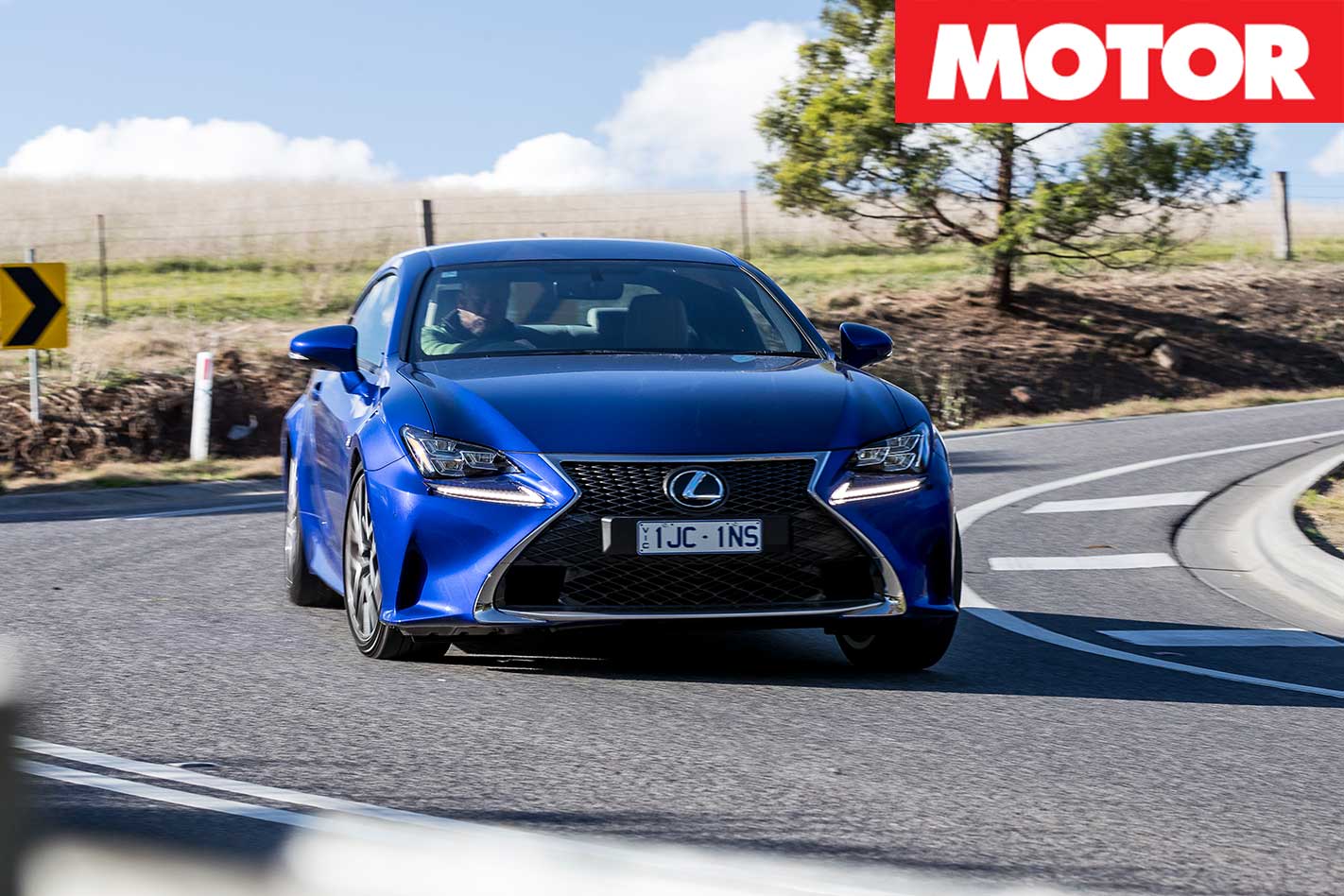
The adaptive setup rides fine, and absorbs initial impacts well, even in Sport mode. However, it lets the car bob a little over bigger stuff. And with so much grunt so soon, the multi-link rear axle calls on the stability system often. But it’s at least worth trusting.
The variable steering rack isn’t the sharpest, and suffers from a typical lack of feedback under load, however, it’s geared well and feels more natural than the Lexus. This, combined with lush suspension compliance, make the 4 Series the easiest to snake through urban environments, too, with crisp throttle response and that silky ZF auto at the core of its driveability.
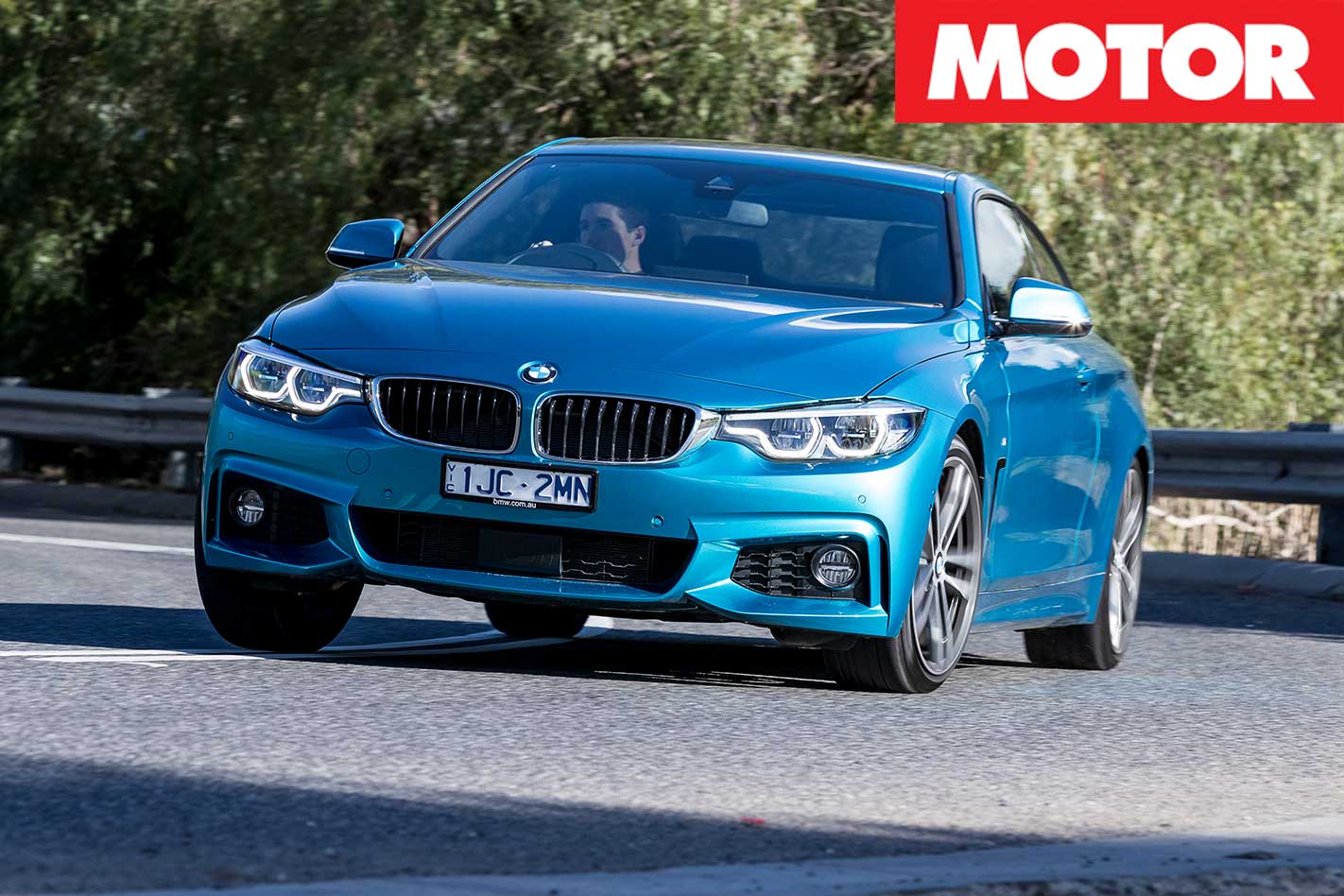
The Infiniti’s the complete opposite, riding the V6’s tidal-like thrust the moment its turbos hit positive pressure. It’s laughable that the Q60 comes fitted with an ‘eco’ pedal, designed to push back against any throttle travel that might quench its thirst with more juice than needed. It would be like trying to cork the Snowy Hydro.
The upside to this is fearsome rolling performance, shooting the Infiniti from 80km/h to 120km/h in 2.8 seconds. You still nervously engage full power, even at speed, though. Max clog in the Lexus is a different event. Its relatively puny torque figure is delivered so high it never threatens the rear 265mm tyres once you’re moving, but adds 1.2 seconds to the same 80-120 sprint. Meanwhile, the BMW can’t use its healthy weight advantage to pip the more powerful Infiniti, its smaller twin-scroll turbine simply no match for the gut-turning acceleration offered by the Red Sport’s twin blowers.
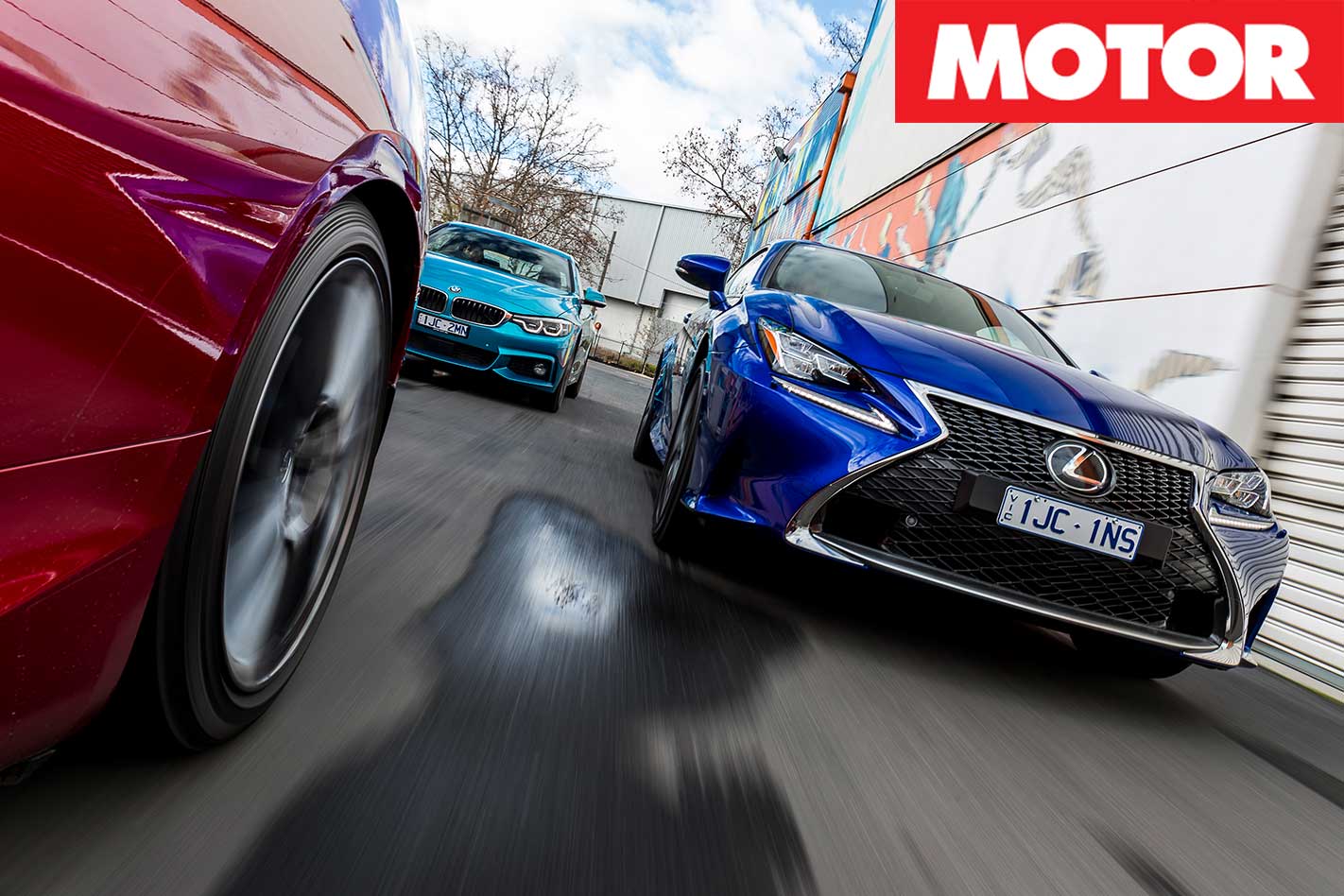
And on the inside? The Infiniti revels in glamour. Sparkling faux carbon-fibre runs down the centre stack arches, touchpoints feature traces of aluminium, and the seats are wrapped in semi-aniline leather. The thing’s nicely designed if you ignore the fact two digital screens are plonked on top of one another.
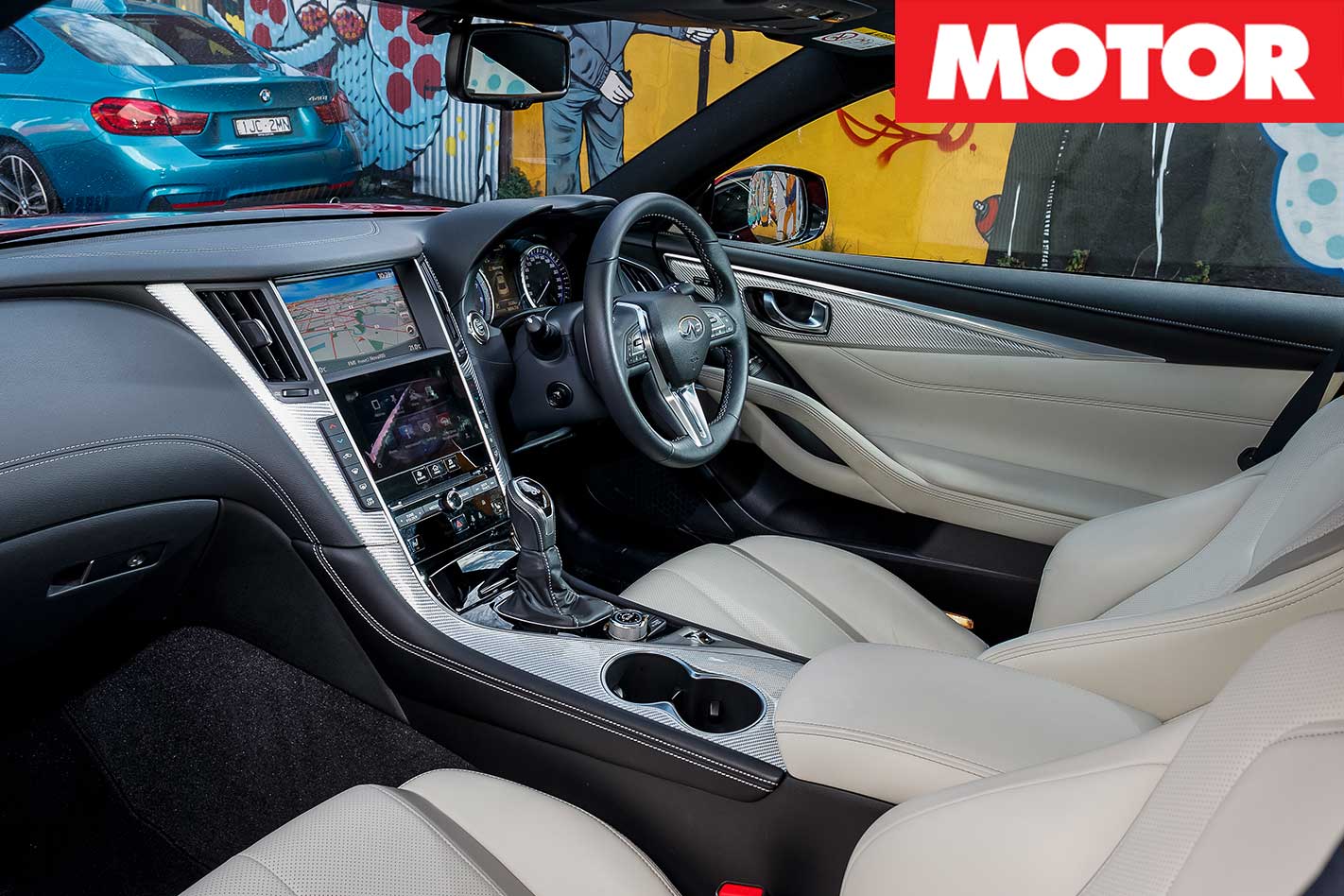
Slide into the BMW and it feels like you’ve sat down in an architect’s studio. It’s a bit bland at first; the pedals are rubber, and it’s covered in black and silver. However, its appeal grows with time. The important things – handbrake, seat switches, gear lever – are exactly where you want them. And the steering wheel is the best looking and the nicest to hold.
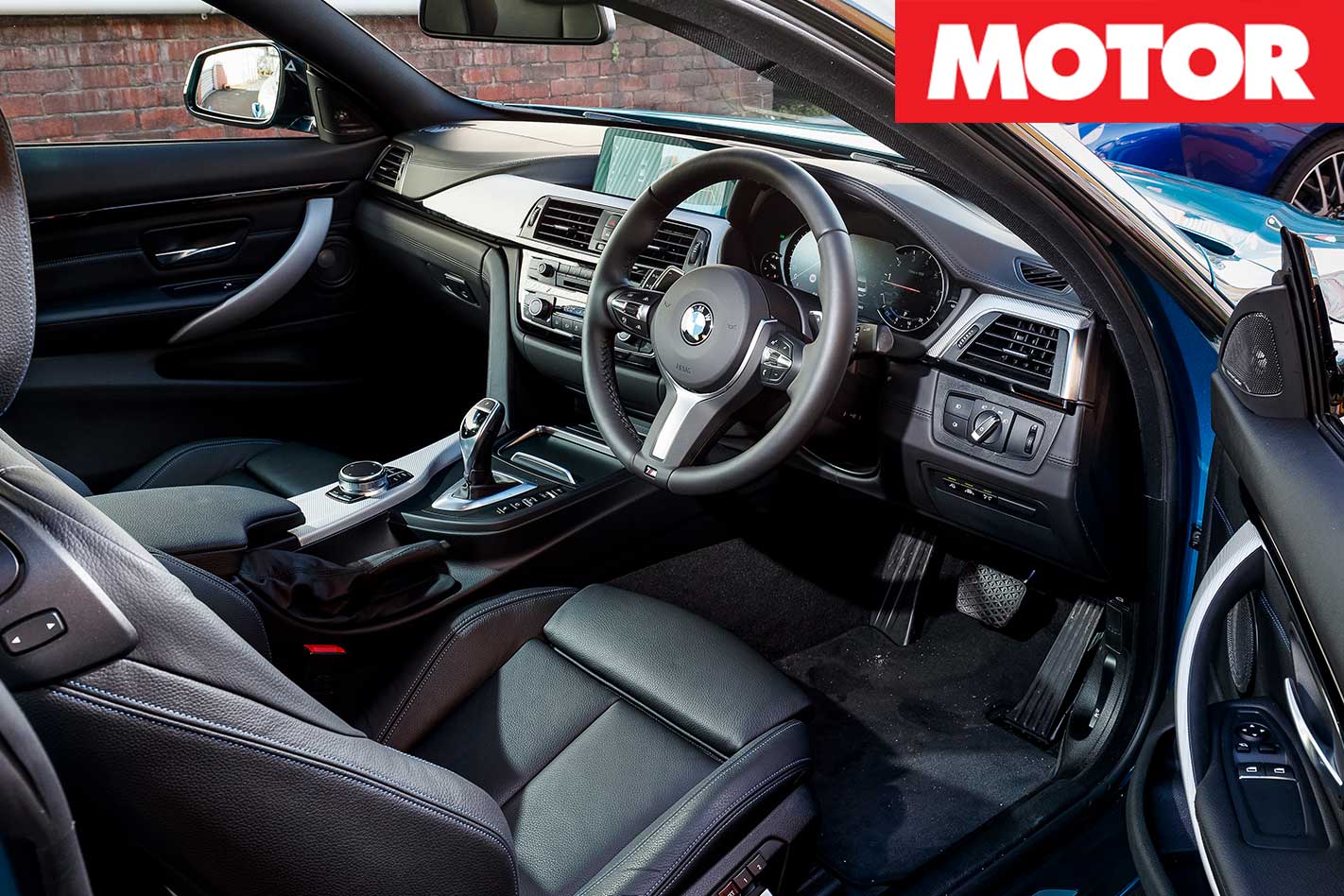
The Lexus, meanwhile, mimics a Ridley Scott film set. You stumble upon whorled stitching, falling buttresses, and a furled fascia. The carpet is thick, the pedals and paddles are metal, and everything turns or clicks with a solid, measured weight. The seats, which are heated, ventilated, and aggressively bolstered, would feel at home in something twice as expensive. Its refinement gives away nothing to BMW.
Functionality, however, is a different story. Buttons, knobs, pads, are everywhere. The dreaded track-pad remains frustrating, and linked to a dim-witted infotainment system. There’s a sneaking Toyota-ness about it, too, while fat body pillars eat into the glass house, making it more cab-forward than it should be.
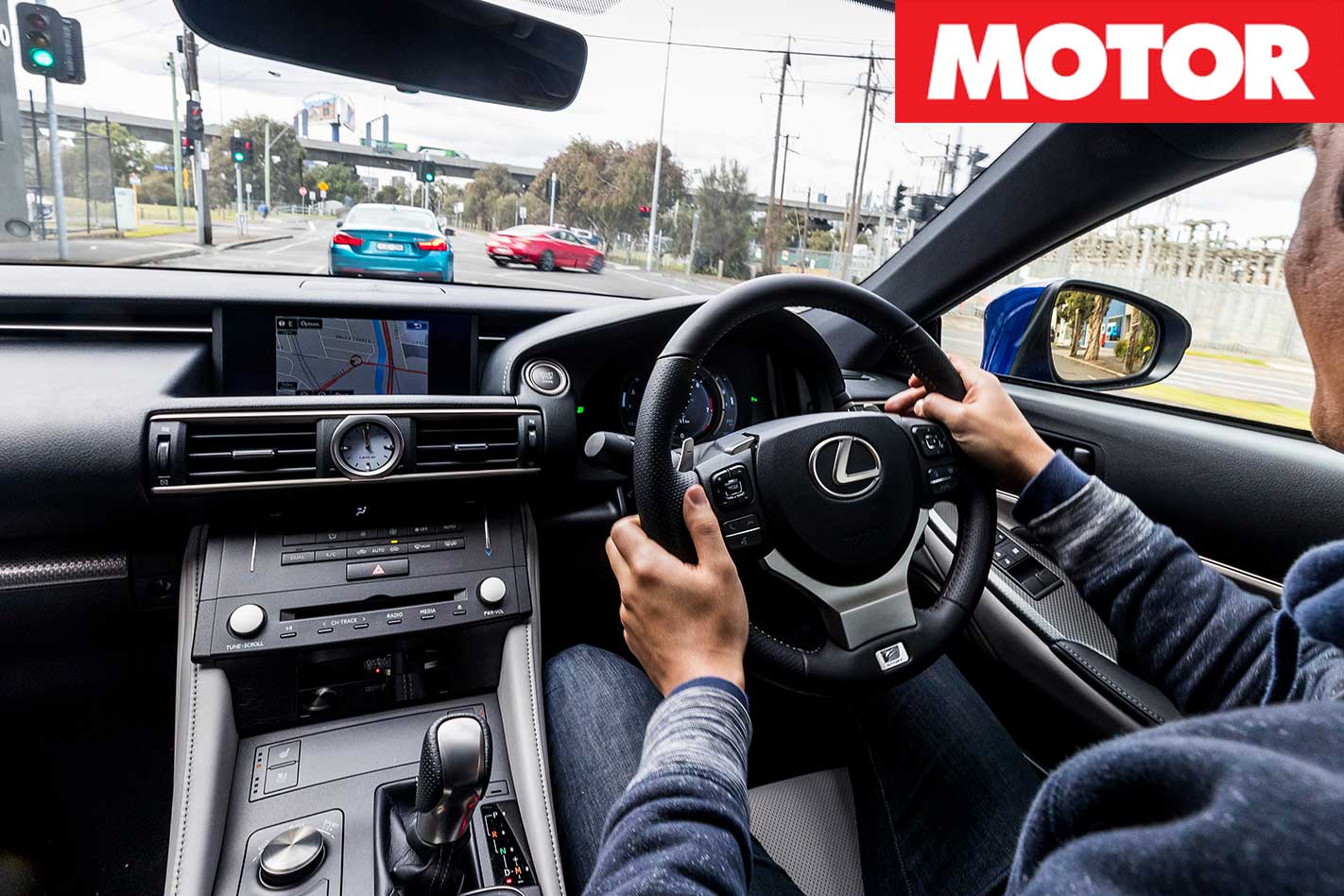
So have the Japanese proved differences between these three merely lie in a badge? Well, not in the Infiniti’s case. While it might seem like the real deal, with more features crammed in here than the latest iPhone X – seriously, the only options are paint colours – and an alluring look, the Q60 Red Sport proves to be all style, little substance.
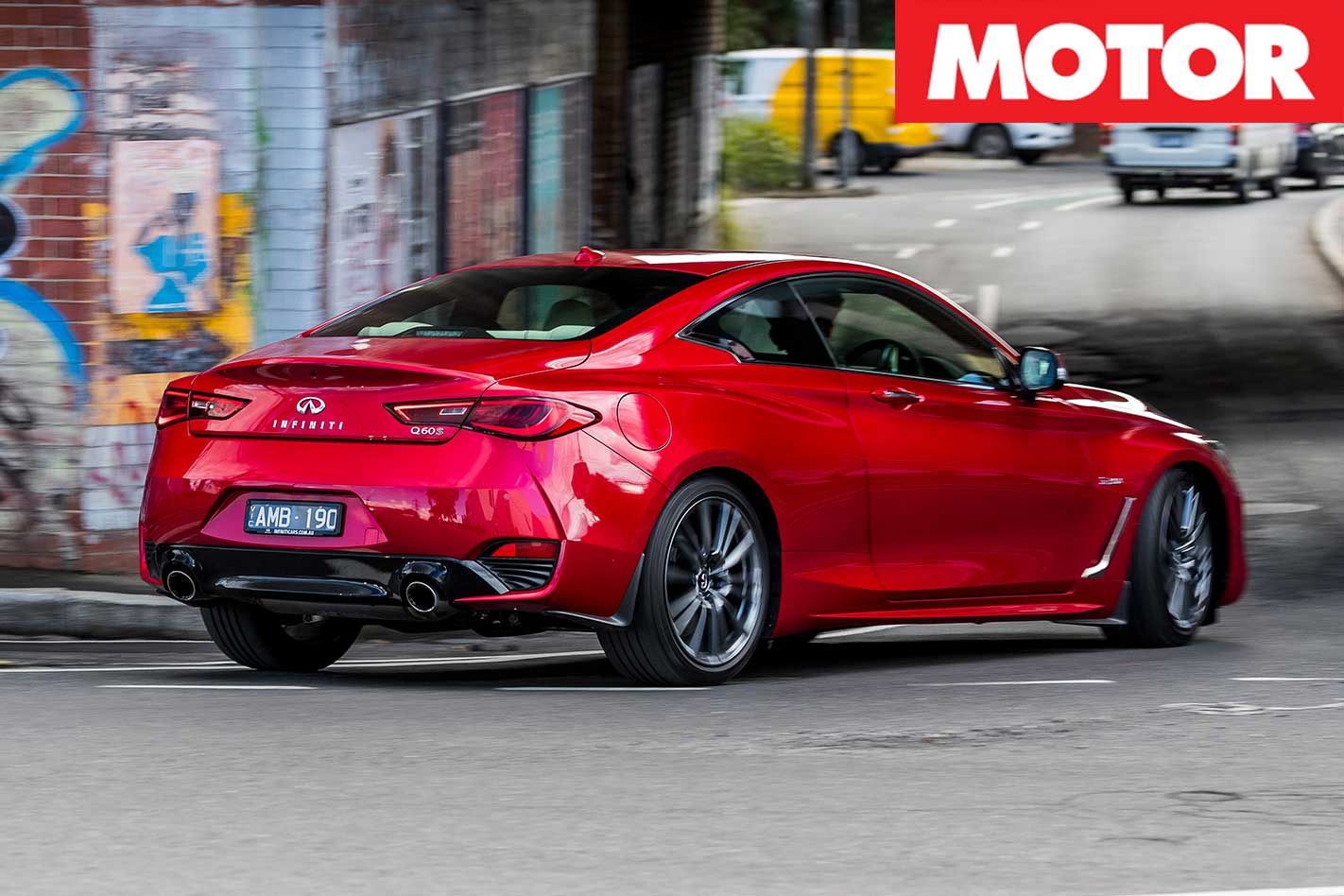
You could swap the Lexus and Infiniti’s price tags and no-one would notice. That chassis might not sparkle with feel, but it has more dynamic talent than most 1700kg-odd rigs. There’s loads of grip at its limits, and you’d enjoy cutting track laps from morning ’til night. The interior feels lavish, and the noise from inside is enchanting. But the RC’s approach lacks clear thinking. We couldn’t master the throttle and steering’s ultra-lightness during commuting, no matter how much time we spent in it. And if only the F Sport’s engine could bite with the same anger as its bark.
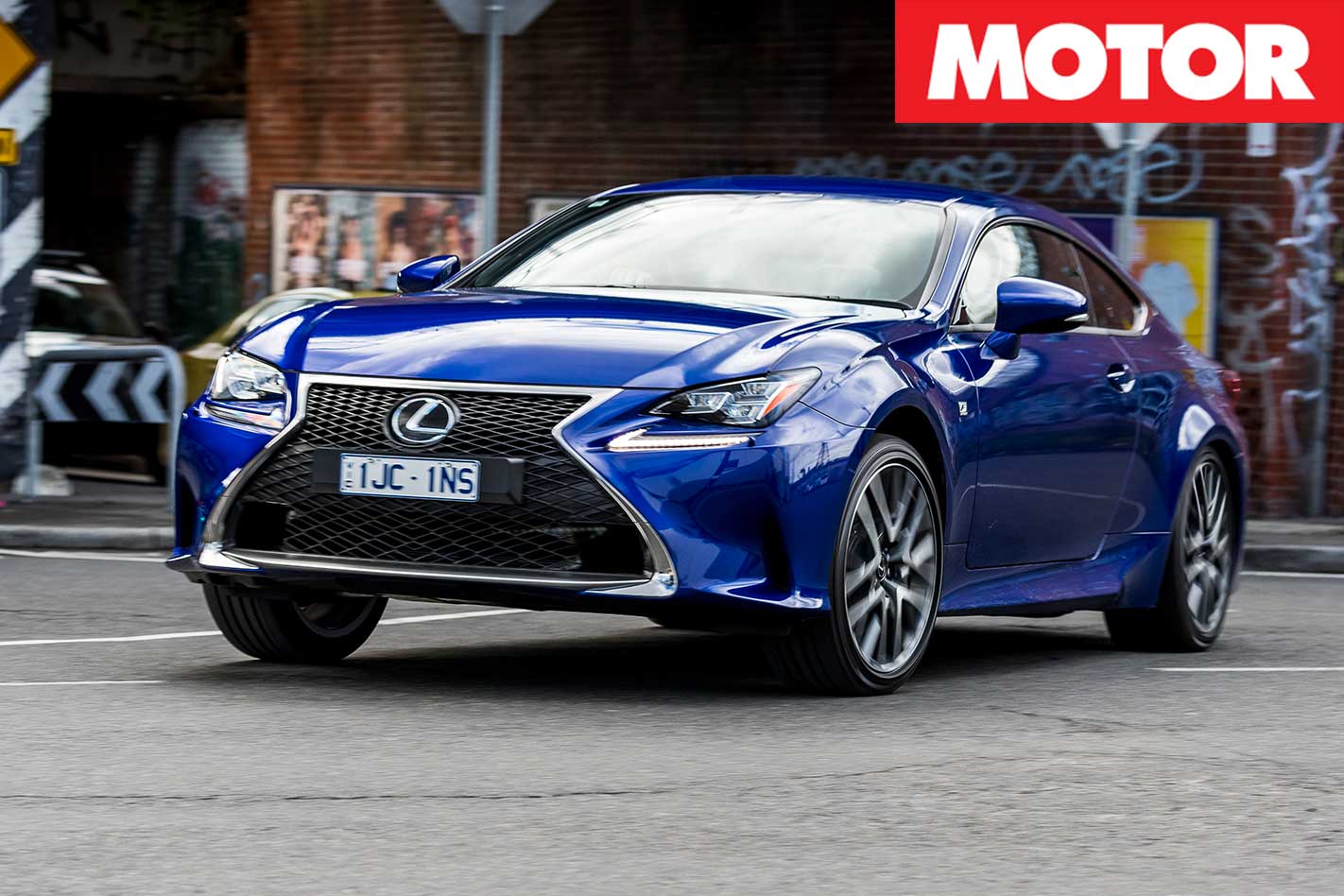
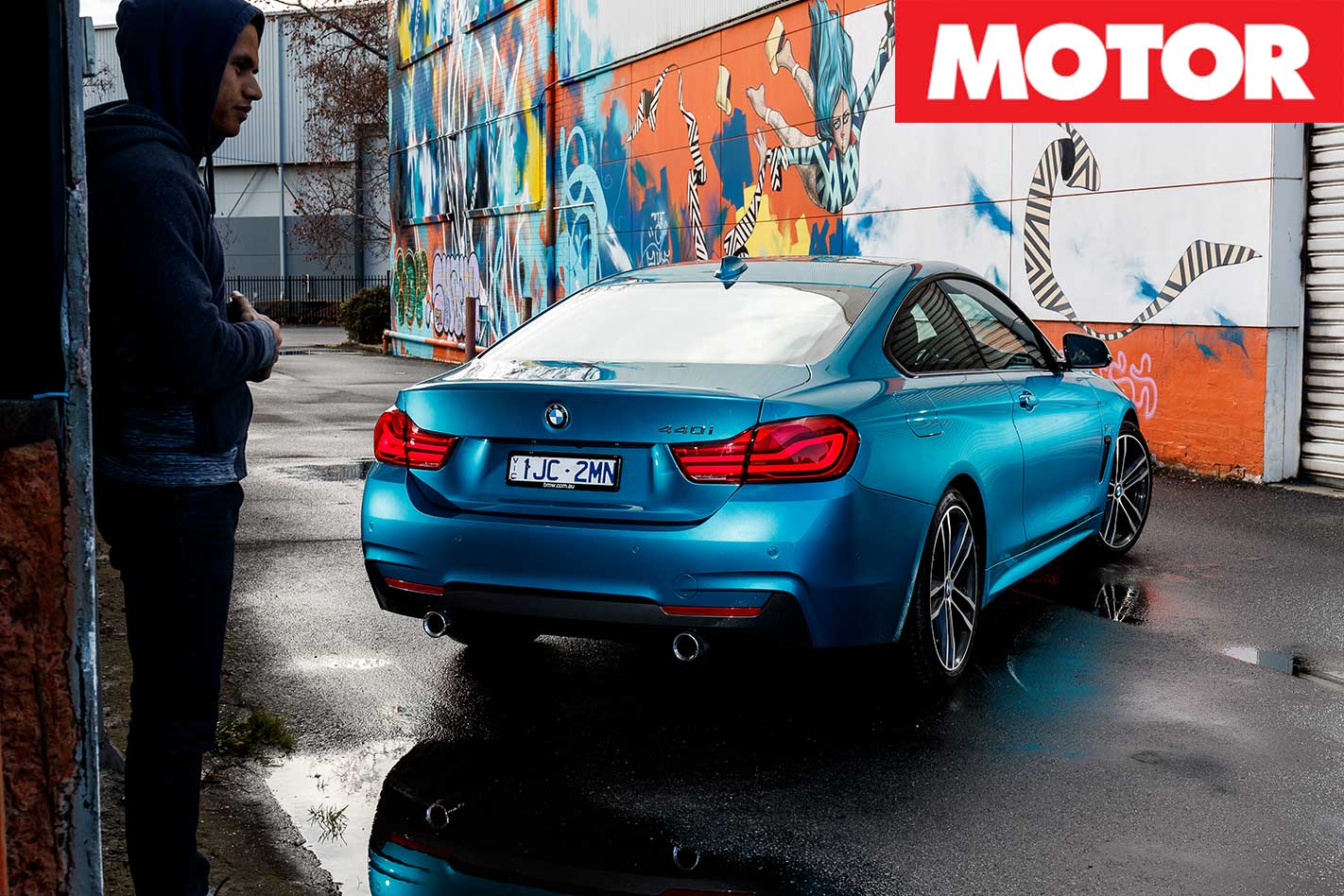
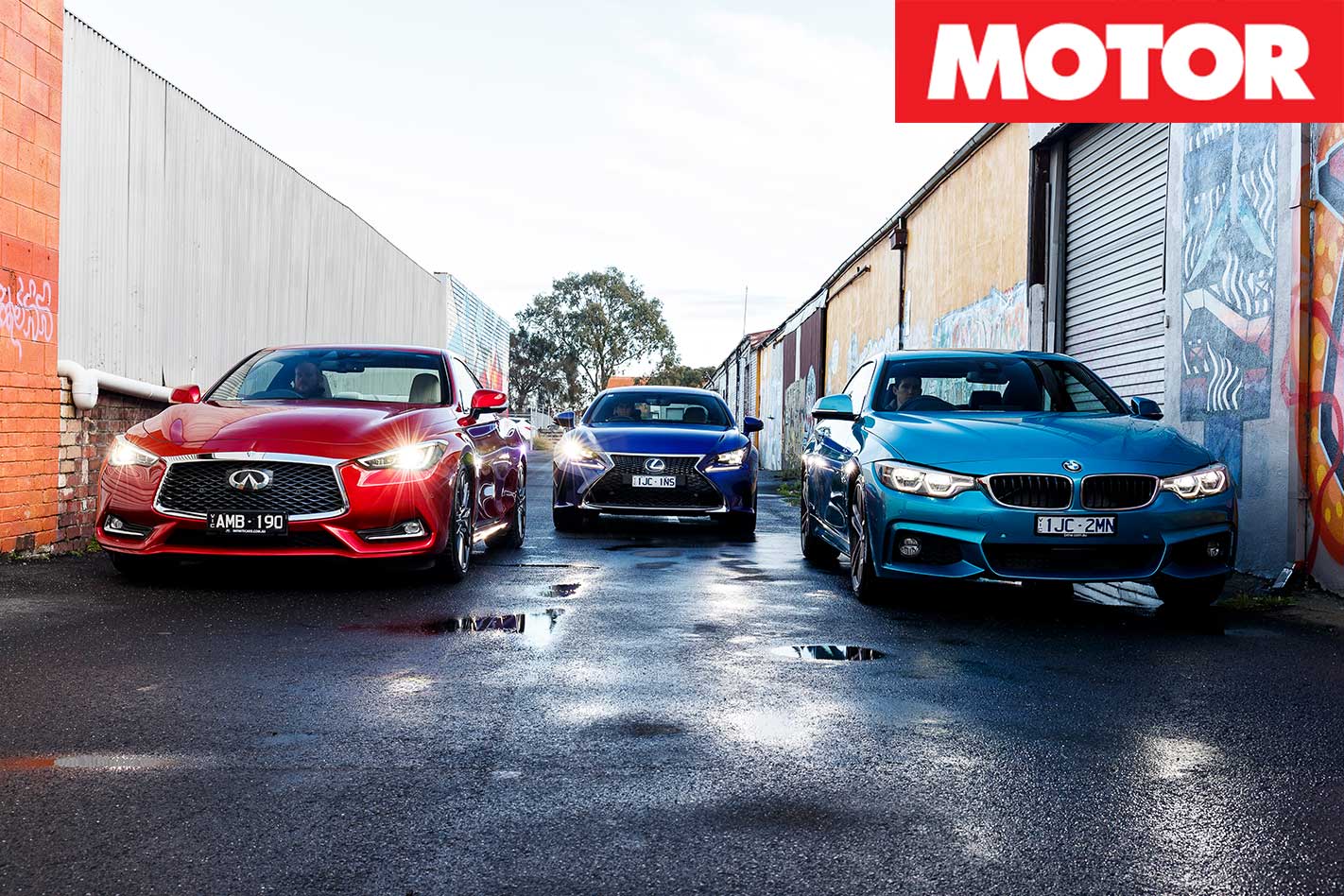
| u00a0 | 2018 Infiniti Q60 Red Sport | 2018 Lexus RC350 F-Sport | 2018 BMW 440i |
| BODY | 2-door, 4-seat coupe | 2-door, 4-seat coupe | 2-door, 4-seat coupe |
| DRIVE | rear-wheel | rear-wheel | rear-wheel |
| ENGINE | 2997cc V6, DOHC, 24v, twin-turbo | 3456cc V6, DOHC, 24v | 2998cc inline-six, DOHC, 24v, turbo |
| BORE/STROKE | 86.0 x 86.0mm | 94.0 x 83.0mm | 82.0 x 94.6mm |
| COMPRESSION | 10.3:1 | 11.8:1 | 11.0:1 |
| POWER | 298kW @ 6400rpm | 233kW @ 6400rpm | 240kW @ 5500rpm |
| TORQUE | 475Nm @ 1600rpm | 378Nm @ 4800rpm | 450Nm @ 1380rpm |
| POWER/WEIGHT | 167kW/tonne | 139kW/tonne | 154kW/tonne |
| TRANSMISSION | 7-speed automatic | 8-speed automatic | 8-speed automatic |
| WEIGHT | 1784kg | 1680kg | 1555kg |
| SUSPENSION (front) | A-arms, adaptive dampers, anti-roll bar | A-arms, adaptive dampers, anti-roll bar | Struts, adaptive dampers, anti-roll bar |
| SUSPENSION (rear) | Multi-links, adaptive dampers, anti-roll bar | Multi-links, adaptive dampers, anti-roll bar | Multi-links, adaptive dampers, anti-roll bar |
| L/W/H | 4685/2052/1395mm | 4695/1840/1395mm | 4640/1825/1377mm |
| WHEELBASE | 2850mm | 2730mm | 2810mm |
| TRACKS | 1599/1580mm (f/r) | 1580/1570mm (f/r) | 1547/1593mm (f/r) |
| STEERING | electrically assisted | electrically assisted rack-and-pinion | electrically assisted rack-and-pinion |
| BRAKES (front) | 355mm ventilated discs, 4-piston calipers | 357mm ventilated discs, 4-piston calipers | 340mm ventilated discs, two-piston calipers |
| BRAKES (rear) | 350mm discs, 2-piston calipers | 310mm ventilated discs, single-piston calipers | 330mm ventilated discs, single-piston calipers |
| WHEELS | 19.0 x 9.0-inch (f/r) | 19.0 x 8.0-inch (f); 19.0 x 9.0-inch (r) | 19.0 x 8.0-inch (f); 19.0 x 8.5-inch (r) |
| TYRE SIZES | 245/40 R19 94W (f/r) | 235/40 R19 (f); 265/35 R19 (r) | 225/40 R19 (f); 255/35 R19 (r) |
| TYRE | Dunlop SP Sport Maxx 050 DSST CTT | Bridgestone RE050 | Pirelli P Zero |
| PRICE | $88,900 | $78,451 | $105,380 |
| PROS | Grunt, everywhere; feelsome brakes | Sonorous six; bargain price; quite agile | Turbo punch; balanced handling; good looks |
| CONS | Terrible ride; distant steering; spooky handling | Feels digital, underpowered and overweight | Price; silly options |
| RATING | 3 out of 5 stars | 3.5 out of 5 stars | 3.5 out of 5 stars |
THE NUMBERS
Boost wins; Lexus not fast enough
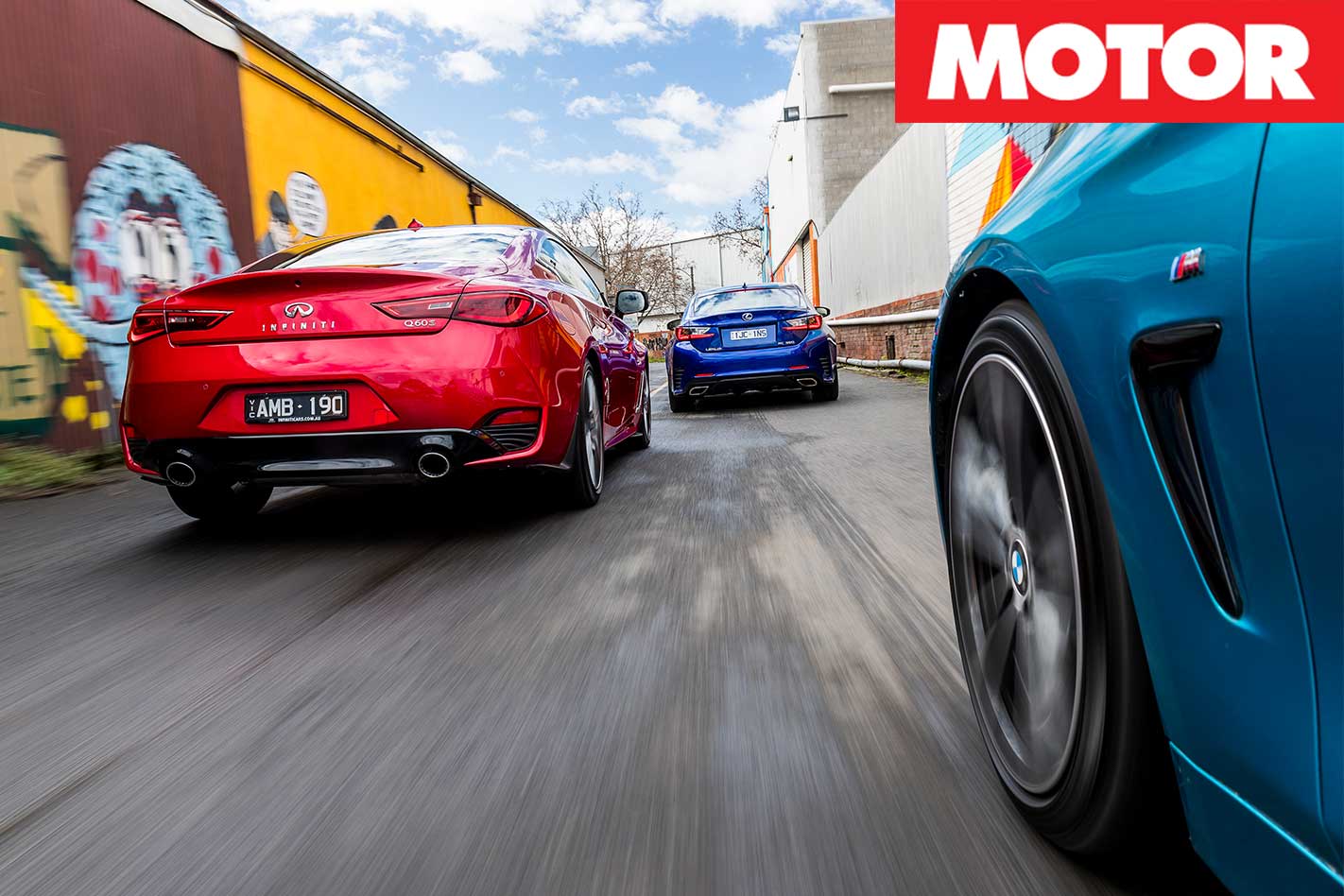
| u00a0 | Infiniti Q60 Red Sport | Lexus RC350 F-Sport | BMW 440i |
| 0-10km/h (sec) | 0.54 | 0.42 | 0.46 |
| 0-20km/h (sec) | 1.02 | 0.87 | 0.87 |
| 0-30km/h (sec) | 1.46 | 1.43 | 1.30 |
| 0-40km/h (sec) | 1.98 | 1.96 | 1.70 |
| 0-50km/h (sec) | 2.51 | 2.48 | 2.10 |
| 0-60km/h (sec) | 3.03 | 3.11 | 2.60 |
| 0-70km/h (sec) | 3.56 | 3.82 | 3.14 |
| 0-80km/h (sec) | 4.20 | 4.55 | 3.70 |
| 0-90km/h (sec) | 4.84 | 5.34 | 4.33 |
| 0-100km/h (sec) | 5.49 | 6.42 | 5.14 |
| 0-110km/h (sec) | 6.20 | 7.49 | 5.89 |
| 0-120km/h (sec) | 7.01 | 8.54 | 6.74 |
| 0-130km/h (sec) | 7.97 | 9.67 | 7.68 |
| 0-140km/h (sec) | 8.97 | 10.99 | 8.77 |
| 0-150km/h (sec) | 10.02 | 12.51 | 9.94 |
| 0-160km/h (sec) | 11.14 | 14.1 | 11.22 |
| 0-170km/h (sec) | 12.36 | N/A | 12.59 |
| 0-400m | 13.5sec @ 178.3km/h | 14.41sec @ 161.75km/h | 13.27sec @ 173.86km/h |
| 80-120km/h | 2.81sec | 3.95sec | 2.98sec |
| 100-0km/h | 37.24m | 38.15m | 37.17m |
| SPEED IN GEARS | u00a0 | u00a0 | u00a0 |
| 1st | 60km/h @ 7000rpm | 54km/h @ 6200rpm | 62km/h @ 7000rpm |
| 2nd | 92km/h @ 7000rpm | 91km/h @ 6200rpm | 97km/h @ 7000rpm |
| 3rd | 144km/h @ 7000rpm | 132km/h @ 6200rpm | 145km/h @ 7000rpm |
| 4th | 209km/h @ 7000rpm | 168km/h @ 6200rpm | 180km/h @ 7000rpm |
| 5th | 250km/h @ 6125rpm* | 200km/h @ 6200rpm | 236km/h @ 5700rpm* |
| 6th | 250km/h @ 5315rpm* | 230km/h @ 5775rpm* | 250km/h @ 5250rpm* |
| 7th | 250km/h @ 4780rpm* | 230km/h @ 4755rpm* | 250km/h @ 4645rpm* |
| 8th | N/A | 230km/h @ 3955rpm* | 250km/h @ 3610rpm* |
As tested by MOTOR: Heathcote Dragway, 4:23pm, 15 degrees, dry. Driver: Louis Cordony. *Manufacturer’s claim


